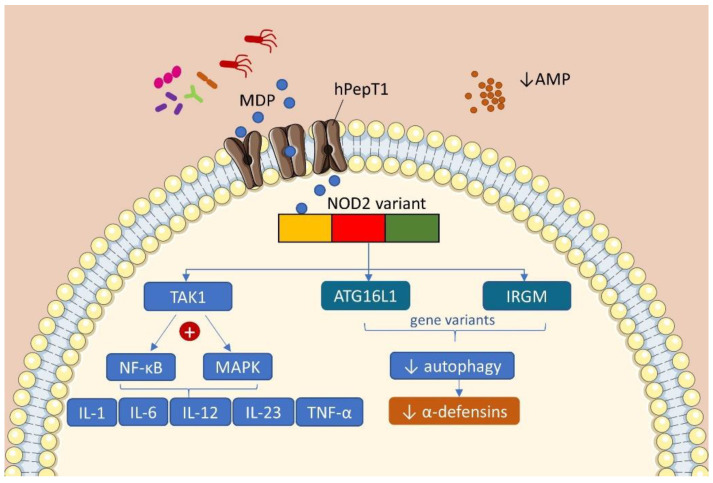Figure 1.
Consequences of the main genetic variants present in the IBD. Bacterial MDP is transported by hPepT1 into the epithelial cell and is recognized by the NOD-2 receptor variant. This interaction activates the kinase TAK1 and its downstream effectors NF-kB and MAPK, leading to the production of pro-inflammatory cytokines. NOD-2 receptor also interacts with genes related to autophagy ATG16L1 and IRGM, reducing the production of AMPs and bacterial killing. In IBD, these mechanisms are impaired due to genetic variants and contribute to the pathogenesis of the disease. (AMP: antimicrobial peptides; ATG16L1: autophagy related 16 like 1; hPepT1: human peptide transporter 1; IRGM: immunity related GTPase M; MAPK: mitogen-activated protein kinase; MDP: muramyl dipeptide; NF-κB: nuclear factor kappa B; NOD2: nucleotide-binding oligomerization domain containing 2; TAK1: transforming growth factor beta activated kinase 1; TNF-α: tumor necrosis factor alpha).

